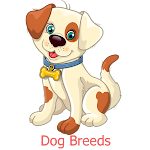The Dalmatian is a distinctive and well-known breed of dog. Known for their striking black or liver spotted coat, Dalmatians are intelligent, energetic, and loyal animals. If you are considering adding a Dalmatian to your family, there are several things you should know about the breed.
History of the Dalmatian
Dalmatians have a long history as working dogs. They were originally bred to accompany horse-drawn carriages and guard the passengers and cargo. Dalmatians are known for their endurance and athleticism, which made them ideal companions for long journeys. Today, Dalmatians are still used as firehouse dogs and in other working roles.
Physical Characteristics
Dalmatians are medium-sized dogs with a distinctive coat of black or liver spots on a white background. They have a lean, muscular build and a friendly expression. Dalmatians have a unique coat that sheds year-round, so regular grooming is necessary to keep their coat looking its best.
Temperament
Dalmatians are known for their playful and energetic nature. They are intelligent dogs that thrive on mental and physical stimulation. Dalmatians are loyal and affectionate with their families but can be wary of strangers. Proper socialization and training are essential for Dalmatians to ensure they are well-behaved and well-adjusted pets.
Exercise Needs
Due to their high energy levels, Dalmatians require regular exercise to stay healthy and happy. Daily walks, playtime, and interactive toys are all great ways to keep your Dalmatian entertained and engaged. Dalmatians also excel in agility and obedience training, so consider enrolling your dog in these activities to provide mental stimulation as well as physical exercise.
Health Considerations
Like all dog breeds, Dalmatians are prone to certain health issues. Deafness is common in the breed, with up to 30% of Dalmatians experiencing some degree of hearing loss. Regular veterinary check-ups and screenings can help detect and manage health issues in Dalmatians. It is also important to maintain a healthy diet and weight for your Dalmatian to prevent obesity-related health problems.
Training and Socialization
Training and socialization are crucial for Dalmatians to be well-behaved and happy pets. Positive reinforcement training methods work best with Dalmatians, as they respond well to praise and rewards. Early socialization with other dogs and people is also important to prevent aggression or fearfulness in Dalmatians.
Conclusion
In conclusion, owning a Dalmatian can be a rewarding experience for the right family. With their playful nature, intelligence, and loyalty, Dalmatians make great companions for active individuals or families. However, it is important to be prepared for the unique needs of the Dalmatian breed, including regular exercise, grooming, and training. With proper care and attention, your Dalmatian can be a beloved member of your family for many years to come.
FAQs
Q: Do Dalmatians have any health issues to watch out for?
A: Yes, Dalmatians are prone to deafness and obesity-related health problems. Regular veterinary check-ups and a healthy diet can help manage these issues.
Q: Are Dalmatians good with children?
A: Dalmatians can be good with children, but proper socialization and supervision are necessary to ensure a positive relationship between the dog and the child.
Q: How much exercise does a Dalmatian need?
A: Dalmatians are high-energy dogs that require regular exercise to stay healthy and happy. Daily walks and playtime are essential, as well as engaging in activities like agility and obedience training.
YOU MAY LIKE Dog names:
The Art of Matching Your Dogʼs Personality to Their NameThe Art of Naming Multiple Dogs: Tips for Harmony
The Art of Naming Senior Dogs: Considerations and Tips
The Art of Naming Sporting Dogs: Tips and Insights
The Art of Naming Therapy and Service Dogs
The Art of Naming Working Dogs: Tips and Considerations
The Best Big Dog Names
The Best Small Dog Names for the New Pet in Your Life
The British Bulldog: A Closer Look at the English Bulldog Breed
Icelandic Sheepdog: The Charming History and Characteristics
The Connection Between Dog Names and Temperament


